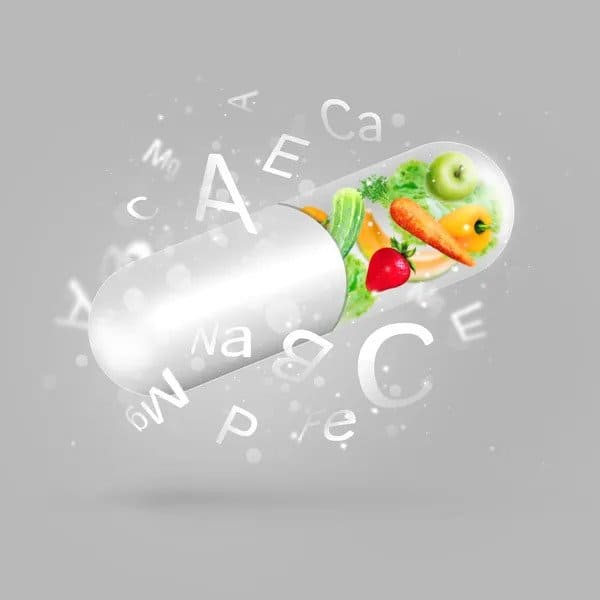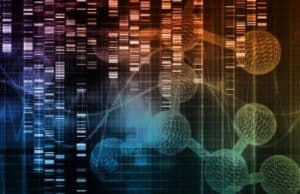Have you ever found yourself wondering which vitamin deficiency causes hair loss? Believe it or not, many vitamin deficiencies can affect your hair health. From iron deficiency (anemia) to vitamin d deficiency, all of these can affect hair growth and even lead to hair loss.
What is Hair Loss?
Every day, it is estimated that we lose between 50 and 150 hair follicles every day without even noticing. When we begin to lose more hairs than we can replenish then this, simply put, is “hair loss”.
Hair loss can occur for many different reasons, whether it be a genetic condition like androgenetic alopecia (male pattern baldness), immune condition like alopecia areata, or vitamin deficiency.
Whilst conditions like male and female pattern baldness cause permanent hair loss, and thus can only be treated with an FUE hair transplant, vitamin deficiency related hair loss is usually temporary. This means your hair will, eventually grow back!
Why does Vitamin Deficiency Cause Hair Loss?
Unfortunately, there is no easy answer as to why vitamin related hair loss occurs. Whilst some deficiencies cause problems with circulation, others may affect the skin or hair follicles themselves.
Your scalp and hair follicles, like many other parts of our body, need a delicate blend of nutrients and vitamins in order to be healthy. So, key to having healthy hair is having the right amounts of vitamins and minerals in your everyday diet and as dietary supplements.
What Can I Do If I Think I am Suffering With Vitamin Deficiency Related Hair Loss?
If you think you may be suffering with hair loss and are wondering what you can do about it, then the first thing to do would be to arrange a meeting with your gp or doctor. They will be able to help with which vitamin deficiency causes hair loss in your particular case through medical testing.
As a general rule of thumb, if you are suffering with a receding hairline or thinning hair on the crown (for men) and mid-parting (for women), then nutritional deficiency is going to be an unlikely explanation for your hair loss. In these cases, androgenic alopecia would be a more likely outcome. For more information, read our articles on the Norwood Scale and the Ludwig Scale.
In cases of genuine alopecia, your gp may recommend speaking to a hair transplant clinic. In those cases, feel free to book your free consultation with ourselves. We have a range of hair loss solutions on offer from hair loss medication to a dhi hair transplant.
Can Over Supplementing Vitamin A, B, C, or D Cause Hair Loss As Well?
Yes! Believe it or not, over-supplementation may cause hair thinning and hair loss. In a study conducted by Guo (2017), using too many supplements can cause hair loss over an extended period of time.
In much the same way that our bodies require a basic number of vitamins and minerals to thrive, too much selenium, or other vitamins can also be detrimental to your health. So, the key is to follow expert medical advice and keep vitamin deficiencies at bay, without over-supplementation.
So, Which Vitamin Deficiency Causes Hair Loss?
As stated above, vitamins and minerals are absolutely essential for having healthy hair. So, which vitamin deficiency causes hair loss?
1. Vitamin D Deficiency
One of the most important vitamins we can intake on a daily basis is vitamin d. Available through the sun or tablet form, vitamins d performs a very important role in our physical wellbeing, including the maintenance of healthy hair!
One study (Saini et. al 2021) found a relationship between vitamin d deficiency and increased levels of some hair loss conditions (androgenetic alopecia, scarring alopecia, and even telogen effluvium).
If you think you may be suffering with a vitamin d deficiency, then you can always counteract this by taking vitamin d supplements. As this form of hair loss is only temporary, vitamin d supplements should stand you in good stead for hair growth!
2. Vitamin E Deficiency
One of the main vitamin deficiencies that may cause hair loss is vitamin e. Vitamin e is a fat soluble vitamin that can help to maintain healthy skin, eyes, and prevent infection. There is also some clinical evidence suggesting vitamin e can help to prevent hair loss.
One small study (Beoy et. al 2010), studied 38 volunteers and found vitamin e to play an important role in preventing hair loss. The study found many of the antioxidants found in vitamin e to help maintain scalp health and promote new hair growth, when tested against a placebo.
That being said, more clinical evidence is needed to show a strong link. Especially with conditions such as male and female pattern hair loss, and alopecia areata.
3. Vitamin B Deficiency
Vitamin B complex, or deficiency, has plenty of evidence supporting a link with hair loss. Of all the vitamins and minerals, it has one of the strongest correlations. According to one study (Almohanna, 2019), ‘only riboflavin, biotin, folate, and vitamin B12 deficiencies have been associated with hair loss’.
The study even went on to state that ‘vitamin B2 (riboflavin) is a component of two important coenzymes: flavin mononucleotide and flavin adenine dinucleotide’. Both of these enzymes have been shown to prevent hair loss. So, a vitamin b deficiency may cause hair loss!
4. Vitamin C Deficiency
Vitamin C is absolutely vital in maintaining our immune system and production of collagen. But did you know that there is some evidence supporting the evidence of vitamin c and hair loss?
As part of a balanced diet, we usually get plenty of vitamin c through citrus fruits and fruit juices, like oranges, lemons, and cranberries. So, it’s often unlikely that you will ever need a vitamin c supplement, unless you’re feeling a little bit ill!
Vitamin C’s role in collagen production is absolutely vital in the role of hair growth. Collagen is an important part in the dermic layer (skin). So, an absences of collagen may inhibity healthy hair growth. So, stay alert!
5. Iron Absorption Problems
Iron deficiency is also one of the most common causes of hair loss. Park (2013), found that patients suffering with iron deficiency (anaemia) were more likely to suffer with hair loss conditions, such as telogen effluvium, and male and female pattern hair loss.
If you think you may be suffering with an iron deficiency, then hair loss may not be one of the most common symptoms. If you feel you have pale skin or low energy, then you may be suffering with iron deficiency.
In any case, arrange a consultation with your local doctor or gp, as this could worsen and pose a serious health risk.
6. Zinc Deficiency
Believe it or not, zinc is actually one of the most important minerals you can take on a daily basis. Zinc performs a fundamental role in many of our bodily functions, namely: vision, skin health, healthy hair growth, reproductive health, and even immune system.
On the relationship between zinc deficiency and hair loss, there is some persuasive evidence. Some studies have shown our hair follicles to be closely linked with the immune system that supports hair growth.
As zinc is vital in the maintenance of the immune system, a zinc deficiency may cause hair loss. That’s why zinc supplementation is often a medication prescribed by doctors to promote new hair growth.
That being said, Plonka (2005) found that zinc supplementation was only useful as a short term hair loss treatment and began to lose effectivity over the long term. So, the key may be to combat zinc deficiencies early on and never let your zinc levels deplete too much!
7. Biotin Deficiency
If you have ever been to a high street pharmacy like Boots or Superdrug, then you have probably heard of biotin supplements. Often, biotin supplements marketed on the hair and beauty market, and are marketed as beneficial for your hair, skin, and nails.
Despite this, Patel (2017) suggests ‘there is limited research to support the utility of biotin in healthy individuals’. So, whilst we wouldn’t recommend a biotin supplement as a panacea to protect against hair loss, this may be something to consider as a “once in a while” hair loss treatment.
Concluding Remarks
This article has provided an exhaustive list of almost every nutritional deficiency and the potential link with hair loss. As a general rule of thumb, it is always wise to eat a balanced diet and invest in a high quality vitamin d tablet over the Winter months, especially in the UK!
If you think you may suffer with alopecia areata, male or female pattern baldness, then be sure to arrange your free consultation with Harley Street Hair Transplant Clinics! We’re always happy to help you on your hair regrowth journey and map out a plan moving forward for you!








